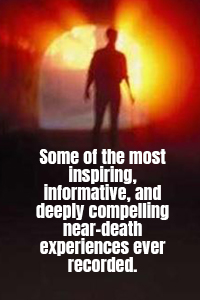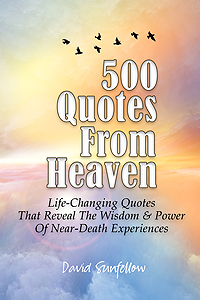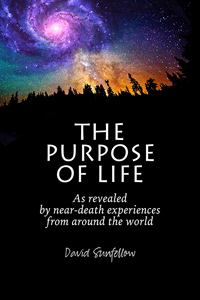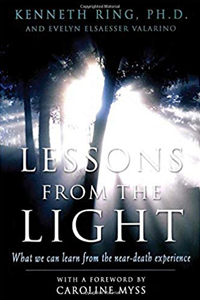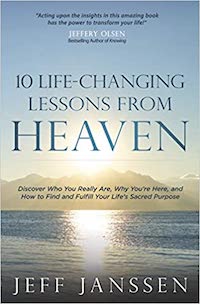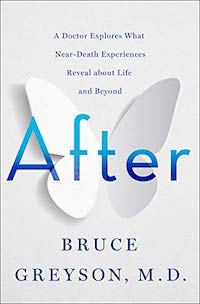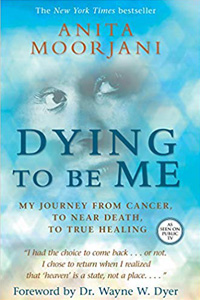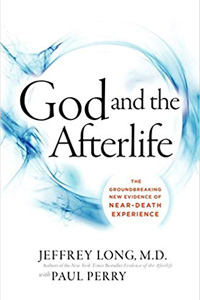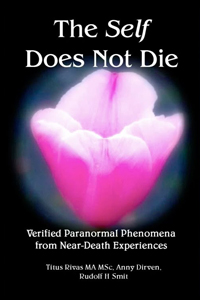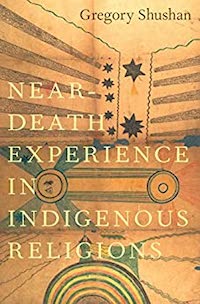![]()
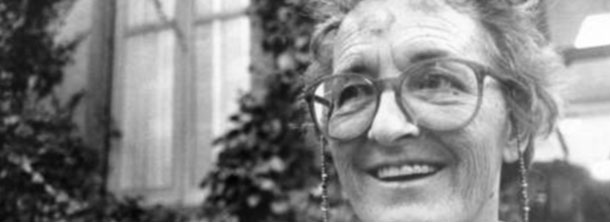
Releasing The Butterfly
By Sandy C
HeavenKnowsBooks
September 10, 2016
“Many people say: Of course, Doctor Ross has seen too many dying patients. Now she starts getting a bit funny.”
 These were the opening lines of On Life After Death, a little book containing transcripts of three lectures given by Elisabeth Kubler-Ross between 1977 and 1982.
These were the opening lines of On Life After Death, a little book containing transcripts of three lectures given by Elisabeth Kubler-Ross between 1977 and 1982.
Dr. Ross received international recognition and acclaim for her first book, On Death and Dying (1969) and it remained on the US non-fiction bestseller list for over a decade. It is still regarded world-wide as the classic work in its field of thanatology.
In one of her lectures, Dr. Ross explained that when she sat at the bedside of a dying child, she would explain to the child that the human body is like a cocoon, and that it is only a house to live in for a while.
“As soon as the house is in an irreparable condition,” she would say, “it will release the butterfly.”
T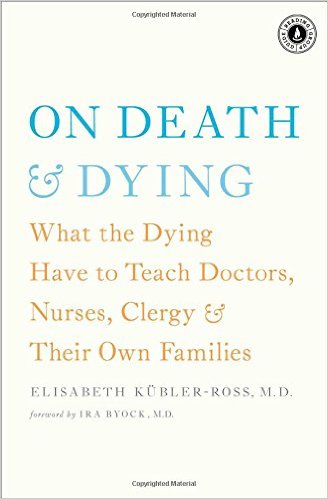 o Dr. Ross, this was no fairy tale. Throughout the 1960’s, she had interviewed over five hundred terminally ill patients, sat beside countless numbers who were going through the dying process, and listened intently to the stories of many who had died and been resuscitated.
o Dr. Ross, this was no fairy tale. Throughout the 1960’s, she had interviewed over five hundred terminally ill patients, sat beside countless numbers who were going through the dying process, and listened intently to the stories of many who had died and been resuscitated.
One case was particularly intriguing. A twelve-year-old girl confessed to her father that she had an experience she’d never told to anyone. A few years earlier, when she had been deathly ill, she had left her body and had not wanted to return. As she explained to her father: “I don’t want to tell my mummy that there is a nicer home than ours.”
The girl told her father that she had traveled to the “other side” where she had been lovingly held by her brother. But this caused her confusion, because she didn’t have a brother. Her father was shocked. Her brother had died only a few months before she was born, and neither of her parents had ever mentioned him to her.
In the 1960’s Dr. Ross instigated a course at the University of Chicago and began weekly seminars on the treatment of terminally ill patients. During one of these seminars, she did something so controversial, it almost destroyed her reputation!
She brought a woman to the stage who had been declared dead but had been resuscitated.
Mrs. Schwartz related how she had floated out of her body and watched as the nurse rushed out of the room to summon help.
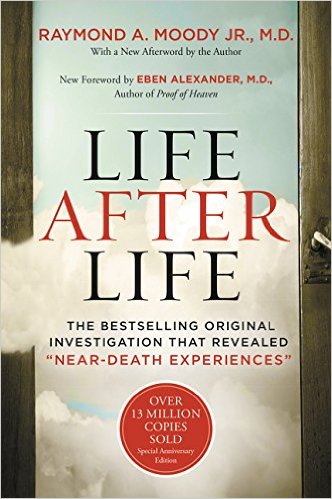 Now, keep in mind that this occurred about a decade before the publication of Dr. Moody’s ground-breaking book, Life After Life, brought the concept of near-death experiences to the attention of the world!
Now, keep in mind that this occurred about a decade before the publication of Dr. Moody’s ground-breaking book, Life After Life, brought the concept of near-death experiences to the attention of the world!
Mrs Schwartz explained that she had observed the doctors frantically working on her from her vantage point above the bed, and she was later able to report which members of the team had wanted to give up. She was even able to repeat a joke one attendant had told in an effort to relieve the tension.
While this was nothing new to Dr. Ross, the reaction of students at the seminar surprised her. She later wrote:
“They all leaped on me because I refused to label the woman’s story as hallucination. They all wanted me to give this woman’s experience a convenient psychiatric label so they could forget it.”
(Source: “There Is Life After Death” by Kenneth L. Woodward, article in McCall’s August 1976, page 134)
The cynical reaction by the medical students prompted Dr. Ross to begin an in-depth study of experiences reported by patients who had been resuscitated after having been declared dead.
Together with hospital co-worker Reverend Gaines, she began collecting accounts of near-death experiences from around the world. To be certain the results contained no religious or cultural bias, they collected data from a variety of cultures including Eskimos, Hawaiians and Australian Aboriginals, and from people with various belief systems such as Hindus, Buddhists, Protestants, Catholics, Jews, agnostics and atheists.
Both Ross and Gaines were astounded by the results. The similarities to those they had heard from their own patients could not be ignored.
In a 1977 lecture, she shared the results of her world-wide study:
“They are all fully aware of shedding their physical body, and death, as we understand it in scientific language, does not really exist.”
“There is no time or distance. If we are separated from a loved one [as we are dying] we have only to think of them and we will be wherever they are in an instant.”
“We may try to communicate with those we leave behind, but soon realize they can neither see nor hear us.”
“We become aware that departed loved ones are awaiting us on the other side.”
“We may travel through a tunnel, pass through a gate, cross a bridge, or travel through something else familiar to us.”
“At the end of this journey, we will be embraced by an indescribably loving light.”
“If we are meant to return, we are permitted to see this light only briefly. If this is the end of our earthly journey, however, we will experience understanding without judgement as we stand in the light, and will come to understand that life on earth was nothing more than a school.”
“We will be shown our life from the first to last day and will re-experience every thought we had, every deed we did, and every word we spoke. In the light of unconditional love and non-judgement, we will come to understand the consequences resulting from those thoughts, words and deeds, and recognize how many opportunities we missed to grow.”
“…many of our patients …are not always grateful when their butterfly is squashed back into the cocoon.”
“Not one of the patients who has had an out-of-body experience was ever again afraid to die.”
Dr. Ross was honored with twenty doctorates for her work with the dying. By 1982 more than 100,000 students had attended her classes on death and dying in colleges, seminaries, medical schools, hospitals, and social-work institutions.
In 1999 she was named by Time Magazine as one of the hundred greatest thinkers of the 20th century. Not bad for someone who was believed by some to be “getting a bit funny”!
Kubler Ross departed this world in 2004. She was posthumously inducted into the National Women’s Hall of Fame in 2007.
…………..
Dr. Elisabeth Kübler-Ross: Her Last Appearance On The Oprah Winfrey Show (October 9, 1997)
Oprah talks with author and psychiatrist Elisabeth Kubler-Ross about her autobiography, Wheel of Life. A pioneer in death and dying studies, Elisabeth shares the greatest lessons she’s learned from those who are dying, how she is welcoming death at the end of her own life and how she’s able to never give up.
…………..
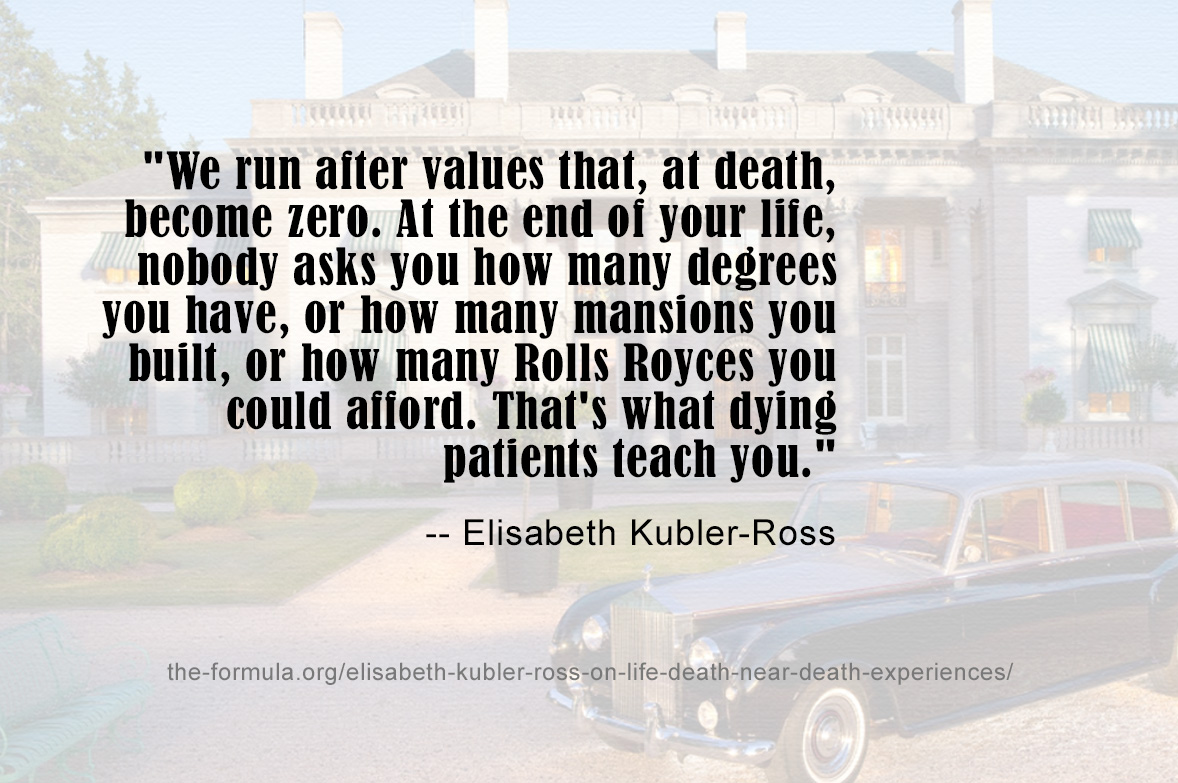
…………..
On Life After Death
By Elizabeth Kubler-Ross
Excerpt:
My most dramatic and unforgettable case of “ask and you will be given,” and also of an NDE, was a man who was in the process of being picked up by his entire family for a Memorial Day weekend drive to visit some relatives out of town. While driving in the family van to pick him up, his parents-in-law with his wife and eight children were hit by a gasoline tanker. The gasoline poured over the car and burned his entire family to death. After being told what happened, this man remained in a state of total shock and numbness for several weeks. He stopped working and was unable to communicate. To make a long story short, he became a total bum, drinking half-a-gallon of whisky a day, trying heroin and other drugs to numb his pain. He was unable to hold a job for any length of time and ended up literally in the gutter.
It was during one of my hectic traveling tours, having just finished the second lecture in a day on life after death, that a hospice group in Santa Barbara asked me to give yet another lecture. After my preliminary statements, I became aware that I am very tired of repeating the same stories over and over again. And I quietly said to myself: “Oh God, why don’t you send me somebody from the audience who has had an NDE and is willing to share it with the audience so I can take a break? They will have a first-hand experience instead of hearing my old stories over and over again.”
At that very moment the organizer of the group gave me a little slip of paper with an urgent message on it. It was a message from a man from the bowery who begged to share his NDE with me. I took a little break and sent a messenger to his bowery hotel. A few moments later, after a speedy cab ride, the man appeared in the audience. Instead of being a bum as he had described himself, he was a rather well dressed, very sophisticated man. He went up on the stage and without having a need to evaluate him, I encouraged him to tell the audience what he needed to share.
He told how he had been looking forward to the weekend family reunion, how his entire family had piled into a family van and were on the way to pick him up when this tragic accident occurred which burned his entire family to death. He shared the shock and the numbness, the utter disbelief of suddenly being a single man, of having had children and suddenly becoming childless, of living without a single close relative. He told of his total inability to come to grips with it. He shared how he changed from a money-earning, decent, middle-class husband and father to a total bum, drunk every day from morning to night, using every conceivable drug and trying to commit suicide in every conceivable way, yet never able to succeed. His last recollection was that after two years of literally bumming around, he was lying on a dirt road at the edge of a forest, drunk and stoned as he called it, trying desperately to be reunited with his family. Not wanting to live, not even having the energy to move out of the road when he saw a big truck coming toward him and running over him.
It was at this moment that he watched himself in the street [sic], critically injured, while he observed the whole scene of the accident from a few feet above. It was at this moment that his family appeared in front of him, in a glow of light with an incredible sense of love. They had happy smiles on their faces, and simply made him aware of their presence, not communicating in any verbal way but in the form of thought transference, sharing with him the joy and happiness of their present existence.
This man was not able to tell us how long this reunion lasted. He was so awed by his family’s health, their beauty, their radiance and their total acceptance of this present situation, by their unconditional love. He made a vow not to touch them, not to join them, but to re-enter his physical body so that he could share with the world what he had experienced. It would be a form of redemption for his two years of trying to throw his physical life away. It was after this vow that he watched the truck driver carry his totally injured body into the car. He saw an ambulance speeding to the scene of the accident, he was taken to the hospital’s emergency room and he finally re-entered his physical body, tore off the straps that were tied around him and literally walked out of the emergency room. He never had delirium tremens or any aftereffects from the heavy abuse of drugs and alcohol. He felt healed and whole, and made a commitment that he would not die until he had the opportunity of sharing the existence of life after death with as many people as would be willing to listen. It was after reading a newspaper article about my appearance in Santa Barbara that he sent a message to the auditorium. By allowing him to share with my audience he was able to keep the promise he made at the time of his short, temporary, yet happy reunion with his entire family.
We do not know what happened to this man since then, but I will never forget the glow in his eyes, the joy and deep gratitude he experienced, that he was led to a place where, without doubt and questioning, he was allowed to stand up on the stage and share with a group of hundreds of hospice workers the total knowledge and awareness that our physical body is only the shell that encloses our immortal self.
……………
Elisabeth Kubler-Ross Quotes
“After your death, when most of you for the first time realize what life here is all about, you will begin to see that your life here is almost nothing but the sum total of every choice you have made during every moment of your life. Your thoughts, which you are responsible for, are as real as your deeds. You will begin to realize that every word and every deed affects your life and has also touched thousands of lives.”
“As far as service goes, it can take the form of a million things. To do service, you don’t have to be a doctor working in the slums for free, or become a social worker. Your position in life and what you do doesn’t matter as much as how you do what you do.”
“Death is simply a shedding of the physical body like the butterfly shedding its cocoon. It is a transition to a higher state of consciousness where you continue to perceive, to understand, to laugh, and to be able to grow.”
“Dying is nothing to fear. It can be the most wonderful experience of your life. It all depends on how you have lived.”
“Guilt is perhaps the most painful companion of death.”
“I didn’t fully realize it at the time, but the goal of my life was profoundly molded by this experience — to help produce, in the next generation, more Mother Teresas and less Hitlers.”
“I say to people who care for people who are dying, if you really love that person and want to help them, be with them when their end comes close. Sit with them — you don’t even have to talk. You don’t have to do anything but really be there with them.”
“Learn to get in touch with silence within yourself and know that everything in life has a purpose.”
“Live, so you do not have to look back and say: ‘God, how I have wasted my life.’ “
“The most beautiful people we have known are those who have known defeat, known suffering, known struggle, known loss, and have found their way out of the depths. These persons have an appreciation, a sensitivity and an understanding of life that fills them with compassions, gentleness, and a deep loving concern. Beautiful people do not just happen.”
“The ultimate lesson all of us have to learn is unconditional love, which includes not only others but ourselves as well.”
“There is no joy without hardship. If not for death, would we appreciate life? If not for hate, would we know the ultimate goal is love? At these moments you can either hold on to negativity and look for blame, or you can choose to heal and keep on loving.”
“There is no need to go to India or anywhere else to find peace. You will find that deep place of silence right in your room, your garden or even your bathtub.”
“Throughout life, we get clues that remind us of the direction we are supposed to be headed if you stay focused, then you learn your lessons.”
“We make progress in society only if we stop cursing and complaining about its shortcomings and have the courage to do something about them.”
“It is not the end of the physical body that should worry us. Rather, our concern must be to live while we’re alive — to release our inner selves from the spiritual death that comes with living behind a facade designed to conform to external definitions of who and what we are.”
“It’s only when we truly know and understand that we have a limited time on Earth — and that we have no way of knowing when our time is up, we will then begin to live each day to the fullest, as if it was the only one we had.”
“You will not grow if you sit in a beautiful flower garden, but you will grow if you are sick, if you are in pain, if you experience losses, and if you do not put your head in the sand, but take the pain as a gift to you with a very, very specific purpose.”
“When you learn your lessons, the pain goes away.”
“Instead, the goal of life becomes not to elude death but, because one’s fears do not center so much on it, rather to live in concert with it. After an NDE, the survivor finds a new lease on life; she/he is more willing to try new things and to fit as many things as possible into it because she/he is no longer so afraid of what will happen at death. After the NDE, life is more cherished, and the relationships that gave that life more meaning are emphasized upon. The NDE encourages growth and exploration; its acknowledgment helps for those in a society to desire continued testing of the limits and possibilities of life.”
“We run after values that, at death, become zero. At the end of your life, nobody asks you how many degrees you have, or how many mansions you built, or how many Rolls Royces you could afford. That’s what dying patients teach you.”
“When we have passed the tests we are sent to Earth to learn, we are allowed to graduate. We are allowed to shed our body, which imprisons our souls.”
“I’ve told my children that when I die, to release balloons in the sky to celebrate that I graduated. For me, death is a graduation.”
……………
“It is impossible to die alone. This also includes someone who dies of thirst in a desert hundreds of miles from the next human being, or an astronaut missing the target and circling around in the universe until he dies of lack of oxygen… we will always be met by those who preceded us in death and whom we have loved. This could be a child we lost, perhaps decades earlier, or a grandmother, a father, a mother, or another person who has been significant in our lives.”
— Elizabeth Kubler-Ross from On Life After Death
……………
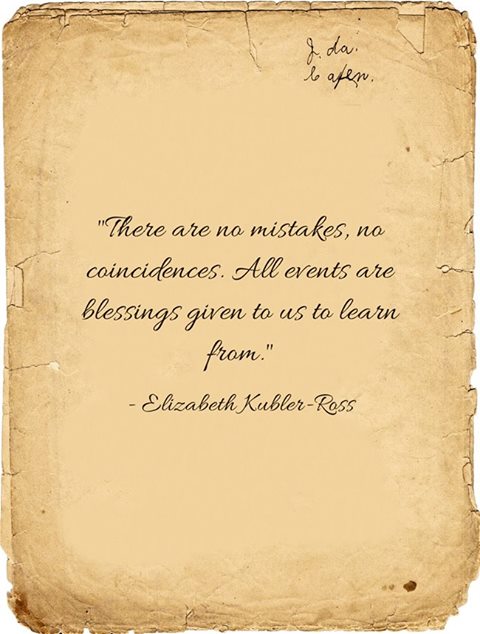
……………
Related Links:
• Near-Death.com on Elisabeth Kubler-Ross
• Elisabeth Kubler-Ross Biography
• Elisabeth Kubler-Ross Foundation
• Wikipedia on Elisabeth Kubler-Ross


